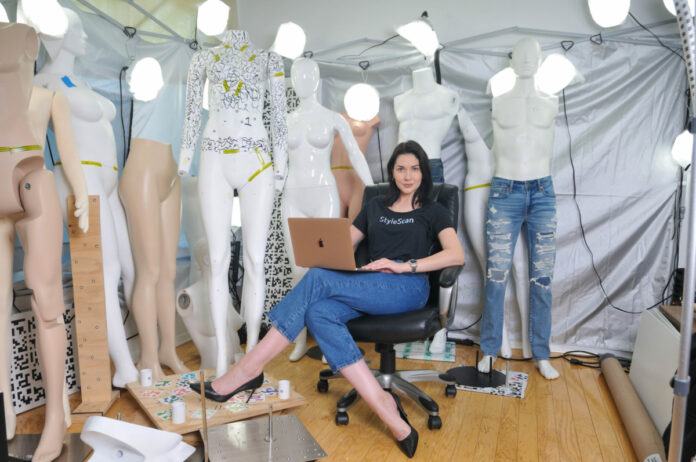StyleScan Inc. uses AI-powered visualization technology to improve the online shopping experience. The Brentwood-based company was founded in 2018 by Larissa Posner, who holds a certificate in business application of machine learning from the Massachusetts Institute of Technology and has more than 10 years of experience in advising companies on investor relations and strategies. She also spent time working as a catalog model. Some of StyleScan’s customers include jewelry brand Millianna, apparel brand Alla Berman and luxury consignment boutique The Remoda.
How long have you worked in the tech industry, and what did you do before StyleScan?
I worked on Wall Street for nearly a decade prior to founding StyleScan. I was a registered investment advisor working with hedge funds, and at the time quantitative trading was the most interesting investment area.
While I was not a “Quant” myself, my role was to analyze and understand the strategies and meet with the scientists who engineered them. I found that the most effective strategy used something called machine learning for stock prediction. That’s when I knew I wanted to work in tech, and with AI specifically, and began thinking about how it could be applied to other problems.
Tell me about your role at StyleScan, and your main responsibilities?
As chief executive of a startup, I wear many hats. The aspect I’m most passionate about is creating our product and driving it forward from all angles: from the client/user standpoint, from the technical capabilities standpoint, from the long-term vision standpoint, etc. I am always analyzing the industry and things it is lacking and making sure StyleScan technology is meeting those needs.
Our technology generates zero textile waste and saves costs.
Larissa Posner
StyleScan
Why is technology within the fashion industry so important?
In this day and age, the fashion industry’s processes are still extremely inefficient. While other industries have innovated with software, AI, automation, virtualization, etc., fashion has lagged behind. I’m a big believer that the physical processes could be replicated digitally, and as such the idea of StyleScan seemed very obvious to me. As an example, StyleScan software helps businesses save on the costs and labor of photoshoots by rendering garments on models virtually. And StyleScan turnaround happens in minutes, rather than weeks.
What other ways can we see fashion and the e-commerce industry become more innovative with its use of technology?
The experience e-commerce offers today feels very antiquated. I believe that the future of online shopping will be very personalized. And that is the crux of our mission; we are making it possible for shoppers to choose models who represent them, to never have to guess their sizes, and to view color combinations before they make their purchases. We represent a new era of making shopping inclusive for women of all shapes, sizes and ethnicities.
Fashion is constantly changing; how do you approach the StyleScan business to be able to adjust to the constantly evolving industry?
Technical talent is the secret sauce to being able to adjust to the constantly evolving industry. Our core tech team members previously developed systems for beating the stock market, casino games and even cancer by coming up with unique protocols.
They accomplish all this through the implementation of machine learning and artificial intelligence. Applying it to computer vision, which is at the core of garment visualization, was a natural progression. The team has been ahead of the curve a number of times before, and in a fast-paced industry such as fashion they’re able to adjust with its constantly evolving nature.
How can the StyleScan technology be used to make areas within the fashion industry more sustainable and cost-effective?
StyleScan is as essential as it gets to fashion sustainability and more broadly, environmental, social, and governance (ESG).
On the business-to-business level, we facilitate an all-digital approach that goes from designing to merchandising to manufacturing. Clients can sell first and manufacture second. We allow clients to merchandise garments — on digitized fashion models — that they have not yet produced in their factories. Our technology generates zero textile waste and saves costs.
On the business-to-customer level, we arm consumers with virtual try-on and visualization. This allows them to make precise choices that lower returns.
What is next for StyleScan?
Continued expansion and customization for clients using our software platform. The enterprises using StyleScan have full creative control of choosing a model and fully styling every element of an outfit, down to detailed accessories. Our technology capabilities and model database are constantly growing.

